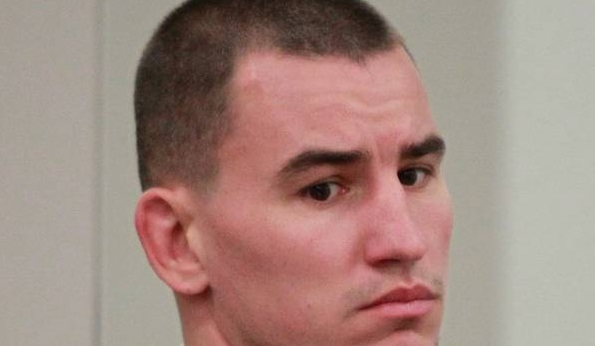
Speaking to reporters this afternoon, Ardern acknowledged that such decisions were rare – there were about 40 a year - and said she had spoken to Lees-Galloway about his reasons for using his power of absolute discretion to cancel any deportation liability for Karel Sroubek and grant him residence.
"The Minister shared with me the careful consideration that he gave this case. I can say from the information that he shared with me, it was clearly for him a very difficult decision.
"While he hasn't been able to share all the information that sat behind that, I think just glancing back at some of the past coverage of his entry into New Zealand, reading between the lines you can probably ascertain why the Minister made the decision that he made," Ardern said.
Ardern would not discuss further details of the case, such as whether Sroubek's life might be in danger, but said "you can draw a fair conclusion on why the Minister made his decision".
Lees-Galloway granted residence to Sroubek despite his use of a false passport to get to New Zealand, his association with the Hells Angels, and the jail time he is currently serving for drug smuggling.
Ardern said Sroubek already had residence but it had been in the name of Jan Antolik, the name he used on his false travel document. Lees-Galloway's move gave him residence in his real name.

Deputy Prime Minister and Foreign Affairs Minister Winston Peters said today he couldn't make a judgment on the case without seeing all the facts first.
"At this point in time I haven't had a briefing from the Minister. I assume that sooner or later I will get one, after which time I will be able to comment," he told the Herald.
But National's justice spokesman Mark Mitchell, a former police officer, said he would travel to the Czech Republic "to get to the bottom of it" if he had to.
"I advanced cases this year of good productive law-abiding citizens who were declined. This just feels rotten," Mitchell said on Twitter.
He later told the Herald that he was "absolutely" prepared to travel to the Czech Republic.
"It's really important for the integrity of our immigration system that this country knows what's going on. I think Iain Lees-Galloway has made a terrible decision around this, and if he's not transparent, we have to look at our options in Opposition."
Lees-Galloway today released the conditions around Sroubek's residence, which included not being convicted of any offence, not using any fraudulent identity, and not providing and false information to a government agency for five years, starting from the time he is released from prison.
"This is a very serious matter and I do not condone your behaviour," Lees-Galloway says in his letter to Sroubek.
"I have given you one final chance to remain in New Zealand and this should serve as a clear warning to you."
Marcus Beveridge, an immigration lawyer at Queen City Law, said if deporting Sroubek would endanger his life, then the credibility of that information should to be looked at.
"Was the information on which the minister relied scrutinised, investigated, second-person checked? None of us know the answer to that, except for the minister."
Most people in the immigration industry would be "gobsmacked and stunned" at the Minister's decision, he said.
Given Sroubek's conviction for drug-smuggling, using a false passport and gang associations, Beveridge said the common view would be to say "you've done enough damage, off you go", rather than give him a final warning.
Sroubek was jailed in 2016 for five years and nine months after being convicted of importing 5kg of MDMA with a street value of $375,000.
In 2011, Judge Roy Wade discharged Sroubek without conviction after he was found guilty of using a false passport and lying to immigration officials, convinced that Sroubek would be in danger from corrupt Czech authorities and the man he helped convict of murder if he were deported.












